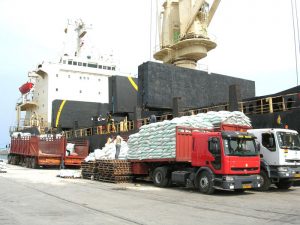The Liquefied Petroleum Gas (LPG) Marketing Companies are opposing an 18 pesewas upward adjustment on a kilogram of LPG.
Vice Chairman of the LPG Marketing Companies Association of Ghana, Gabriel Kumi in a Citi News interview said, the increment will not be in the interest of both LPG operators and consumers.
A kilogram of LPG is currently being sold at GHS6.30.
“At the moment, we are at a record high. GHS6.30 is the highest rate that we have had, yet we are going to add 18 more pesewas per kilo to the price of the product. We believe this too harsh, this will not augur well for the LPG industry in Ghana and the country as a whole”, he stressed.
Gabriel Kumi pleaded with the government to rethink its decision to increase the gas prices.
He said the Association wants the 18 pesewas reviewed in a bid to increase the patronage of LPG products and save the country’s depleting forest reserves.
“LPG is the fuel of choice that we can use to prevent the depletion of our forest resources. But I am afraid that the current prices will not really help in the attainment of some of these objectives. The Association is very much surprised that government is attempting to increase the prices of LPG by adding 18 pesewas tax per kilo. Government must reduce those taxes to make the product much more affordable to the ordinary Ghanaian.”
Last year, there were concerns about a proposed 13.5 pesewas for each kilogram of LPG as Cylinder Recirculation Recovery Margin.
The Chamber of Petroleum Consumers and the Consumer Protection Agency sued the National Petroleum Authority (NPA) over the introduction of the Cylinder Recirculation Recovery Margin.
The two companies in their writ of summons argued among others that the NPA failed to consult with various stakeholders before introducing the policy.
However, after several complaints from stakeholders, the then Energy Minister, Peter Amewu disclosed that the levy had been withdrawn.






